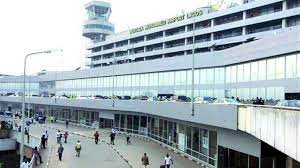
Port concessioning refers to the process through which a public port authority transfers the operational responsibilities, management control, and commercial activities of a port facility to a private entity, typically through a contractual agreement.
Under this arrangement, the private entity, known as the concessionaire, assumes the responsibility of financing, constructing, maintaining, and operating the port facility for a specific period.
The concessionaire is granted exclusive rights to handle the port's operations, including cargo handling, vessel berthing, and related services, in return for meeting predetermined performance targets and making financial contributions.
The port sector plays a critical role in a country's economic development, facilitating international trade, and driving economic growth. In Nigeria, the decision to implement port concessioning was a significant policy shift aimed at addressing inefficiencies and improving the overall performance of the ports.
This article examines the economic policy implications of port concession in Nigeria, highlighting the benefits, challenges, and recommendations for optimizing its impact on the country's economy.
Background of Port Concession in Nigeria
In 2006, the Nigerian government initiated a comprehensive port reform program, which included the concessioning of ports to private terminal operators. The objective was to enhance operational efficiency, attract private sector investments, and reduce the government's financial burden in port management.
Under the concessioning program, the Nigerian Ports Authority (NPA) transferred the management and operations of terminals to private companies through a competitive bidding process.
Benefits of Port Concession
Increased Efficiency and Productivity
One of the significant benefits of port concession in Nigeria is the improvement in efficiency and productivity. Private terminal operators, driven by profit motives, have introduced modern management techniques, advanced technology, and streamlined processes to enhance port operations.
This has resulted in reduced vessel turnaround time, faster cargo clearance, and increased overall productivity of the ports.
Infrastructure Development
Port concessioning has also led to substantial infrastructure development in Nigerian ports. Private terminal operators have made significant investments in upgrading and expanding port facilities, such as container terminals, berths, and handling equipment.
This has improved the capacity and competitiveness of Nigerian ports, enabling them to handle larger volumes of cargo and accommodate larger vessels.
Increased Revenue Generation
By attracting private sector investments, port concessioning has contributed to increased revenue generation for the Nigerian government.
The concession agreements typically include revenue-sharing arrangements, where the government receives a percentage of the terminal operator's revenue. This additional revenue can be utilized for other critical infrastructure projects and public services, benefiting the overall economy.
Challenges and Limitations
Lack of Competition
One of the key challenges in port concessioning in Nigeria is the limited competition among terminal operators. While the initial phase of concessioning witnessed multiple private operators entering the market, subsequent bidding processes have seen a decrease in competition.
This lack of competition can lead to monopolistic tendencies, potentially resulting in higher costs for port users and limited service quality improvements.
Regulatory Framework and Governance
The effectiveness of port concessioning relies heavily on a robust regulatory framework and good governance. Nigeria faces challenges in enforcing regulatory standards and ensuring compliance by private terminal operators.
Weak oversight, corruption, and bureaucratic inefficiencies can undermine the intended benefits of port concessioning and hinder the overall growth of the sector.
Inadequate Hinterland Connectivity
Although port concessioning has improved port operations, inadequate hinterland connectivity remains a significant challenge in Nigeria. Efficient transportation infrastructure, including road and rail networks, is essential for seamless movement of goods to and from the ports.
Addressing this challenge requires coordinated efforts between the government and private sector to invest in and develop an integrated transport system.
Recommendations for Optimizing Port Concession
Promote Competition
To enhance the benefits of port concessioning, the Nigerian government should promote competition among terminal operators. This can be achieved through transparent and competitive bidding processes, encouraging new entrants, and implementing policies that prevent monopolistic practices. Increased competition will drive efficiency, service quality, and competitive pricing.
Strengthen Regulatory Oversight
Efficient regulatory oversight is crucial for the success of port concessioning. The government should strengthen the capacity of regulatory bodies, enhance transparency, and enforce compliance with regulatory standards. Regular audits and performance evaluations of terminal operators can ensure accountability and maintain service quality.
Improve Hinterland Connectivity
To optimize the economic impact of port concessioning, investments in improving hinterland connectivity are essential. The government should prioritize the development of road and rail infrastructure, facilitating efficient movement of goods to and from the ports.
Collaboration with private sector stakeholders, including logistics companies and transport operators, can help address this challenge effectively.
Enhance Stakeholder Engagement
Effective stakeholder engagement is vital for the success of port concessioning. The government should foster collaboration with industry associations, port users, and local communities to ensure their interests are represented and their concerns are addressed.
This inclusive approach will foster trust, promote transparency, and contribute to the long-term sustainability of port operations.
Port concessioning in Nigeria has brought significant improvements to the efficiency, infrastructure, and revenue generation of the ports. However, challenges such as limited competition, regulatory deficiencies, and inadequate hinterland connectivity need to be addressed to maximize the economic benefits.
By promoting competition, strengthening regulatory oversight, investing in infrastructure, and engaging stakeholders, Nigeria can optimize the impact of port concessioning and drive sustained economic growth through its ports.























